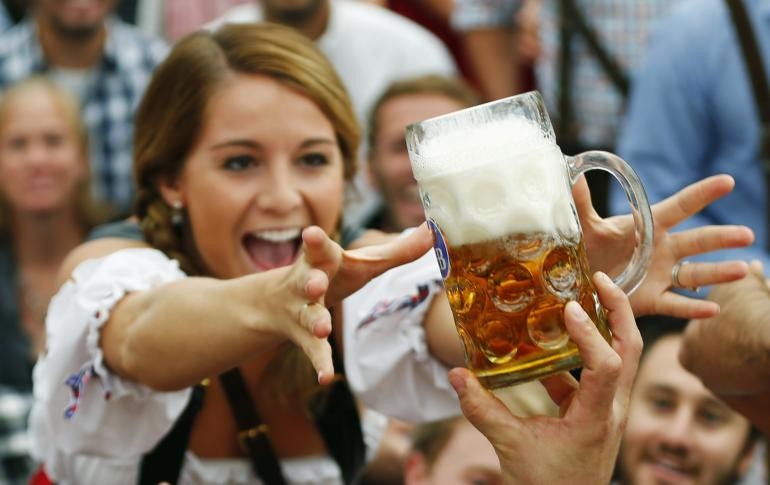No products
Drinking Beer May Not Be Good For Your Health
Is drinking beer good for you? That is the question many people ask, especially as they grow older. For most people, beer is a safe and healthy drink that can be enjoyed by anyone. Many beer drinkers claim to live longer, to get more energy, to have clearer thinking, to be happier, to get you pumped for work and play. Of course, there are many things you should know about beer before you begin drinking it regularly.
First off, there are many different kinds of beer. Beer can come in three categories: Light, Full bodied, and Strong. Beer is also traditionally made with yeast, water, hops, and other grains like oats or malted barley. Today, beer is designed with many different kinds of ingredients, some of which are fruit, grains, hops, other fruits, herbs, vegetables, and even wheat.
So, now we know what beer is, but how do we tell if drinking beer is good for us? Is drinking beer good for you if you are not planning on doing any heavy exercise or making sure to get lots of sleep every night? What about if you want to enjoy a day or two of fun activities, but you are concerned about your health?
In recent years, there has been a number of links drawn between drinking beer and increased heart disease and death. As with almost anything, too much of something is harmful. However, does the danger lie entirely in drinking beer? Does drinking beer really cause heart disease and other health problems?
One of the first things to consider when thinking about the dangers of drinking beer is what it is comprised of. Beer is basically made up of yeast. Yeasts can produce harmful byproducts when they are fermented, such as ethanol and sulfur dioxide. Therefore, it stands to reason that excessive or continued drinking of this product could lead to health issues over time.
One of the methods that researchers have used to try to determine if drinking beer is linked to health problems is the study of how alcoholic beverages affect the brain cells of Alzheimer's patients. It was found that moderate beer drinkers who did not drink coffee had fewer damaged brain cells than those who did drink beer. This makes sense because alcohol can aggravate some of the conditions associated with Alzheimer's, such as dementia and cognitive failure.
Another study that directly links beer to health problems is the study of kidney stones. There was a strong link between moderate beer drinkers and kidney stones. Of course, there does not appear to be a relationship between the consumption of the beverage and the formation of kidney stones, but this is yet another potential health risk worth considering. For those who already have kidney stones, beer may exacerbate the condition because the drink contains a high amount of calcium, which is needed to aid in the prevention of stone formation. This is why pregnant women, diabetics, individuals with high blood pressure and individuals with renal disease should avoid drinking beer altogether.
Finally, the chemical compounds found in hops, a primary ingredient in beer, can actually help reduce the risks of certain cancers, including breast cancer, rectal cancer and esophageal cancer. Those who consume more than four ounces of beer per day are at the highest risk for having certain types of cancer. Two of the compounds in hops, namely isoflavones and xanthohumol, have been found to inhibit the growth of cancerous cells. Some experts think that the compounds work by preventing the proliferation of the cells, but others believe that they play a role in the development of the disease itself. Whether they are responsible for the formation of certain cancers or not, it is clear that drinking beer is not good for your health.
Trusted Online Pharmacy https://stayhealthynow.co
References
https://www.ncbi.nlm.nih.gov/pmc/articles/PMC7831491/
https://pubmed.ncbi.nlm.nih.gov/23607887/
https://www.ncbi.nlm.nih.gov/pmc/articles/PMC6164820/
https://www.ncbi.nlm.nih.gov/pmc/articles/PMC7269243/
https://www.ncbi.nlm.nih.gov/pmc/articles/PMC7827953/
https://www.ncbi.nlm.nih.gov/pmc/articles/PMC6682961/
https://www.ncbi.nlm.nih.gov/pmc/articles/PMC8226943/
https://pubmed.ncbi.nlm.nih.gov/15953717/
https://www.sciencedirect.com/topics/agricultural-and-biological-sciences/polyphenol


Leave a comment